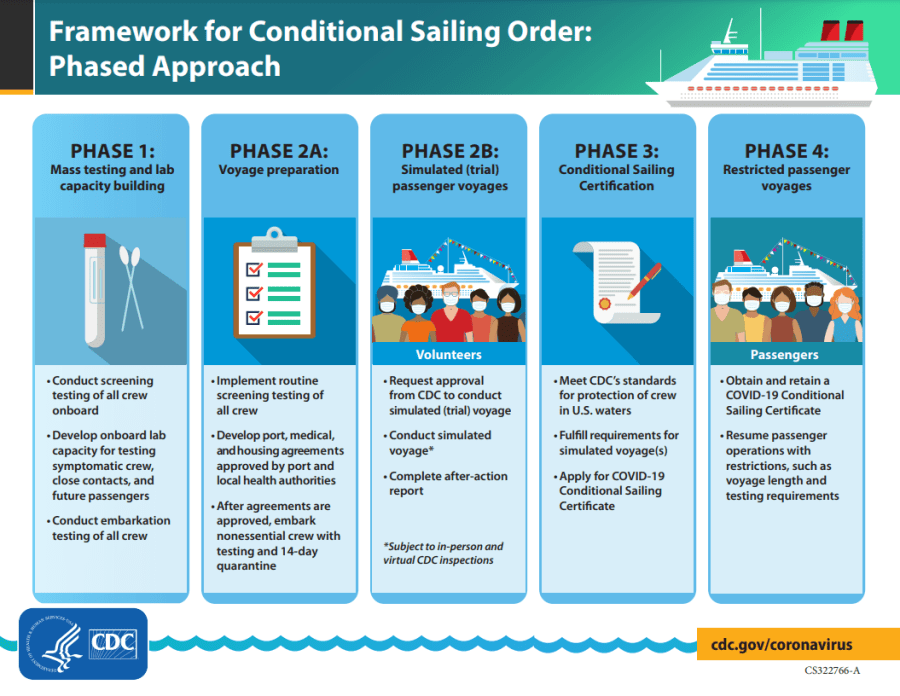WASHINGTON (WFLA) – The U.S. Centers for Disease Control and Prevention have released an updated guidance for cruise ships, allowing cruise ship operators to start getting ready to perform “trial cruises” before fully reopening.
The CDC issued guidance for Phases 2B and 3, for cruise ships to undertake trial voyages with volunteers as passengers. Cruise ship operators now have all of the requirements and recommendations needed to start the trial voyages, before resuming restricted passenger voyages, according to a release from the CDC.
In October 2020, the CDC issued a Conditional Sailing Order to help prevent the spread of COVID-19 on cruise ships and from cruise ships into communities. The order gave a phased approach for bringing cruise travel back and mitigating the risk of spreading the virus further during the pandemic.

Test cruises will have at least 10% passenger capacity and can last two to seven days. The test cruises will also need to have an overnight component.
Cruise ships with at least 95% of passengers vaccinated and 98% of crew vaccinated will be able to bypass the test sailing requirement when applying for their Conditional Sailing Certification, and go straight to sailing with paying passengers.
All volunteers for test cruises must be 18 years of age or older. Passengers are notrequired to be vaccinated against COVID-19, but if they aren’t, they must have written documentation from a health care provider or must self certify that they aren’t at a heightened risk for COVID-19, according to the CDC.
Volunteers must also agree to be evaluated for COVID-19 symptoms before embarking, and after disembarking along with an agreement to be tested for COVID-19 three to five days following the cruise.
The information issued for Phases 2B and 3 includes technical instructions for simulated voyages, specifically.
The guidance from the CDC includes:
- Eligibility and requirements for conducting a simulated (trial) voyage in preparation for restricted passenger voyages.
- Guidance for inspections of cruise ships conducted by CDC during simulated and restricted passenger voyages.
- Operational procedures to assist cruise ship operators in mitigating the risk of spreading COVID-19, including requirements and recommendations on prevention measures, surveillance for COVID-19 on board, laboratory testing, infection prevention and control, face mask use, social distancing, passenger interactive experiences, and embarkation and disembarkation procedures.
More detailed instructions from the updated phases can be found online.
The final phase of the CSO, when reached will allow cruise ship operators with an approved COVID-19 Conditional Sailing Certificate application to sail with passengers, as long as the CSO requirements are followed.
The CDC says it does not anticipate publishing any more documents for Phase 4 of the CSO, but will update documents online to show changes to quarantine, testing, color status, and lessons learned from the simulated voyages that will begin with Phases 2B and 3.
Cruise line representatives have held meetings every two weeks with senior leadership from the CDC and other federal agencies since April 12. The meetings focused on exchanging information about the impact of vaccines and other scientific developments since the CSO was issued, according to the CDC.
At least one test sailing is required for each ship for those cruise lines that don’t meet with the vaccination requirement. The CDC has not released a start date for the trial runs yet.
The agency is still recommending all port personnel, passengers and crew members get a COVID-19 vaccine when it’s available to them.










